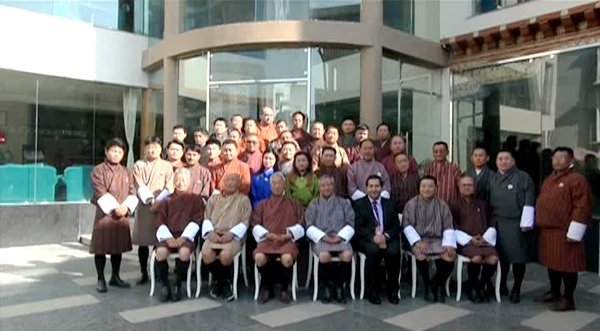 Ageing makes one vulnerable to burdens and disabilities arising from age-related diseases and conditions. Hence better health care services become the need of the hour for the senior citizens. In order to ensure that they age healthily, the first-ever training of trainers’ workshop on integrated care for elderly people was conducted in Phuentshogling which ended yesterday.
Ageing makes one vulnerable to burdens and disabilities arising from age-related diseases and conditions. Hence better health care services become the need of the hour for the senior citizens. In order to ensure that they age healthily, the first-ever training of trainers’ workshop on integrated care for elderly people was conducted in Phuentshogling which ended yesterday.
Around 30 health assistants, dzongkhag health officers and members of the Royal Society for Senior Citizens (RSSC) were trained on how to care for elder people. The resource persons who are mostly medical doctors presented care pathways to manage visual impairment, hearing loss, depression symptoms and cognitive decline among others. The participants will train their colleagues once they reach back to their stations.
“RSSC alone cannot provide services to older people. We are therefore collaborating with the Ministry of Health as they have the required resources, expertise and the medicines,” said Kinzang Dorji, the Vice President of the RSSC.
Taking the care for senior citizens at the forefront, the department of Traditional Medicine Services has already introduced elderly care services in five dzongkhags of Bumthang, Haa, Samdrup Jongkhar, Trashigang and Wangdue Phodrang.
“We have recently started a programme to help older people. We are looking into how to provide services and care for the elderly people. We are collaborating with the modern health services and even the guidelines are also ready,” said Drungtsho Chogyel Dorji, the Chief Program Officer of the Department of Traditional Medicine Services.
According to the World Health Organization, as one attains the age of 60 and beyond, one suffers age-related diseases and impairments such as loss in hearing, visual impairment, immobility, dementia, heart diseases, stroke and diabetes among others.
Sonam Penjor





